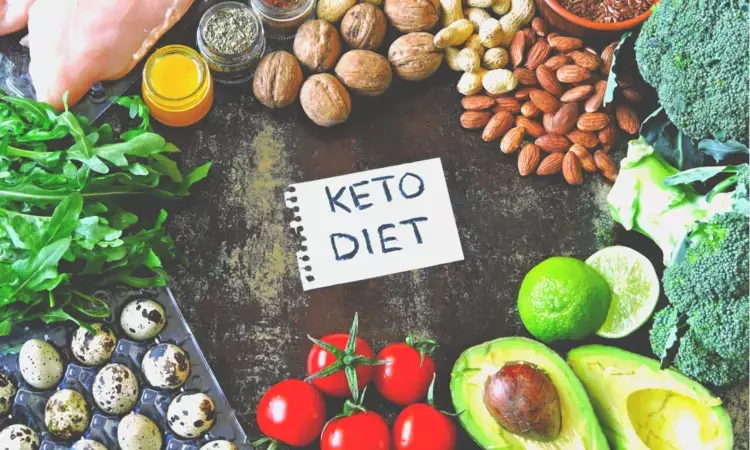- Home
- Medical news & Guidelines
- Anesthesiology
- Cardiology and CTVS
- Critical Care
- Dentistry
- Dermatology
- Diabetes and Endocrinology
- ENT
- Gastroenterology
- Medicine
- Nephrology
- Neurology
- Obstretics-Gynaecology
- Oncology
- Ophthalmology
- Orthopaedics
- Pediatrics-Neonatology
- Psychiatry
- Pulmonology
- Radiology
- Surgery
- Urology
- Laboratory Medicine
- Diet
- Nursing
- Paramedical
- Physiotherapy
- Health news
- Fact Check
- Bone Health Fact Check
- Brain Health Fact Check
- Cancer Related Fact Check
- Child Care Fact Check
- Dental and oral health fact check
- Diabetes and metabolic health fact check
- Diet and Nutrition Fact Check
- Eye and ENT Care Fact Check
- Fitness fact check
- Gut health fact check
- Heart health fact check
- Kidney health fact check
- Medical education fact check
- Men's health fact check
- Respiratory fact check
- Skin and hair care fact check
- Vaccine and Immunization fact check
- Women's health fact check
- AYUSH
- State News
- Andaman and Nicobar Islands
- Andhra Pradesh
- Arunachal Pradesh
- Assam
- Bihar
- Chandigarh
- Chattisgarh
- Dadra and Nagar Haveli
- Daman and Diu
- Delhi
- Goa
- Gujarat
- Haryana
- Himachal Pradesh
- Jammu & Kashmir
- Jharkhand
- Karnataka
- Kerala
- Ladakh
- Lakshadweep
- Madhya Pradesh
- Maharashtra
- Manipur
- Meghalaya
- Mizoram
- Nagaland
- Odisha
- Puducherry
- Punjab
- Rajasthan
- Sikkim
- Tamil Nadu
- Telangana
- Tripura
- Uttar Pradesh
- Uttrakhand
- West Bengal
- Medical Education
- Industry
Ketogenic diet safe and effective for managing drug-resistant epilepsy among kids

Egypt: A ketogenic diet appears to be a safe and effective non-pharmacologic, non-surgical therapy for managing childhood drug-resistant epilepsy (DRE) with a positive impact on EEG and growth and no significant side effects, a recent study has shown. The study was published in Pediatric Research on 11 March 2023.
Drug-resistant epilepsy, as defined by the ILAE (The International League Against Epilepsy), is the failure of adequate trials of two tolerated, properly selected and utilized antiepileptic drug schedules to obtain sustained seizure relief.
A ketogenic diet (KD) is a low-carbohydrate, adequate protein, and high-fat diet which is touted to be a non-invasive, effective, and non-pharmacologic treatment for refractory childhood epilepsy with no neurotoxic effects as compared to multiple anti-seizure medications (ASM). KD is suggested to operate through ketosis (which mimics a starving state), higher fatty acid levels, decreased glucose, neuroprotective properties, and anti-epileptogenic properties. Ketones may also confer neurologic protection, and ketone bodies could confer anti-inflammatory, anti-oxidative, epigenetic, cellular, and gut-microbiome alterations.
Most patients, however, have diet discontinuation because of its restrictive and unpalatable features. So, new KD variants have emerged, including the low-glycemic-index diet and modified Atkins diet (MAD). MAD provides a less restrictive and more palatable dietary treatment option. There is still an ongoing debate on the effectiveness of MAD compared to classic KD.
Against the above background, Ali M. El-Shafie, Menoufia University, Shebin El-Kom, Egypt, and colleagues aimed to assess short- and long-term efficacy, tolerability, and safety of ketogenic diet (classic KD and MAD) in childhood DRE. They also investigated the effect of KD on EEG (electroencephalography) features of children with DRE.
The study included forty patients with DRE diagnosis per the ILAE. They were randomly assigned into classic KD or MAD groups. Investigation of KD was done after lipid, clinical profile and EEG documentation. They were regularly followed for 24 months. Thirty completed this study of 40 patients with DRE.
Six patients could not tolerate KD and were removed from the study (85% tolerability), three more patients were excluded due to parental noncompliance, and one died during the study period. Overall reasons for dropout mainly were GI tract adverse events.
Overall reasons for dropout mainly were diet intolerance, AEs (primarily GI tract related), weight loss, parental unhappiness and change of mind.
The study revealed the following findings:
- Both MAD and classic KD were effective in seizure control as 60% in the classic KD group and 53.33% in the MAD group became seizure-free, and the remaining showed ≥50% seizure reduction.
- The lipid profile remained within acceptable levels in both groups throughout the study period.
- Adverse effects were managed medically and mild with improved growth parameters and EEG during the study period.
A ketogenic diet (classic KD and MAD) appears to be an effective and well-tolerated therapy in treating children with DRE with a positive impact on growth and EEG and no significant side effects.
"KD's role as a single line of therapy, whether from the beginning or following the withdrawal of all other medications once the establishment of full control, is also recommended to be clarified by more studies," the researchers concluded.
Reference:
El-Shafie, A.M., Bahbah, W.A., Abd El Naby, S.A. et al. Impact of two ketogenic diet types in refractory childhood epilepsy. Pediatr Res (2023). https://doi.org/10.1038/s41390-023-02554-w
Dr Kamal Kant Kohli-MBBS, DTCD- a chest specialist with more than 30 years of practice and a flair for writing clinical articles, Dr Kamal Kant Kohli joined Medical Dialogues as a Chief Editor of Medical News. Besides writing articles, as an editor, he proofreads and verifies all the medical content published on Medical Dialogues including those coming from journals, studies,medical conferences,guidelines etc. Email: drkohli@medicaldialogues.in. Contact no. 011-43720751


